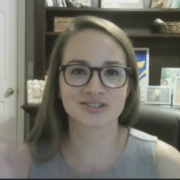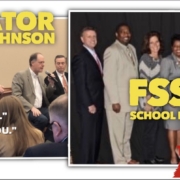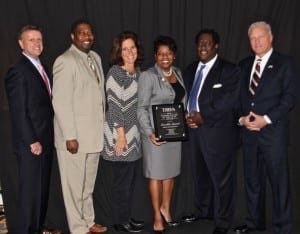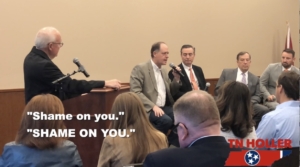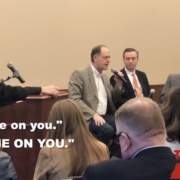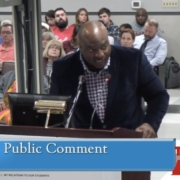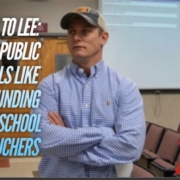WILCO MAN WHO THREATENED DOC WAS PARTY TO TN STANDS LAWSUITS

Last night at the raucous Williamson County School Board meeting, where they became the 4th county to impose a school mask mandate (for 1 month), two men could be seen in a video by the Williamson Home Page following a doctor to his car and yelling at him in a threatening manner that “WE KNOW WHO YOU ARE!” and “WE WILL FIND YOU!” and “YOU’LL NEVER BE ALLOWED IN PUBLIC AGAIN!”
? WILLIAMSON COUNTY ANTI-MASKERS: “We know who you are! We will find you! You’ll never be allowed in public again!”
A doctor who testified for a mask mandate is hassled and threatened on the way out.
(FULL @formvscontent @WilliamsonHmPg VIDEO: https://t.co/dzkHGGldoD) pic.twitter.com/9qA6KEHhCe
— The Tennessee Holler (@TheTNHoller) August 11, 2021
Since we amplified that clip some eagle-eyed Holler Follerers have let us know that one of the men is Rodney H. Lunn Jr., a childless former musician who seems to enjoy the limelight and claims to have retired at 38 years old after 11 years in the diamond business. 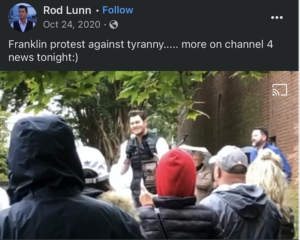
Lunn has been a plaintiff in multiple lawsuits with regular shit-stirrers Tennessee Stands against Governor Bill Lee and Williamson County Mayor Rogers Anderson for imposing mask mandates. The suit was tossed by a judge for lack of standing, but that hasn’t stopped TN Stands from claiming it proves School Boards can’t impose mask mandates. Governor Lee disagrees.
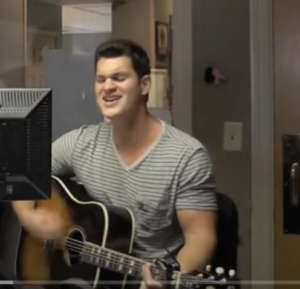 Again: He attended the Williamson County School board meeting this week despite having no children.
Again: He attended the Williamson County School board meeting this week despite having no children.
It’s also worth noting that in the TN Stands lawsuit Rodney Lunn Jr. claims to suffer from asthma… which oddly he never mentioned at a Franklin rally when he bragged about never wearing masks.
In the TN Stands lawsuit Rodney Lunn Jr. claims to suffer from asthma… oddly he never mentioned that at a Franklin rally when he bragged about never wearing masks. ???? pic.twitter.com/crw0sM1ALc
— The Tennessee Holler (@TheTNHoller) August 11, 2021
The other man in the video (who told Lunn to “calm down” before himself turning and threatening the doctor) is Christian musician Dwayne Larring, who puts out a “Worship Musician” newsletter and was at one point in a band called Audio Adrenaline. It seems he also once got epically fired on stage by Kelly Clarkson.

The board meeting was generally wild, with many anti-mask protestors speaking out of turn and yelling at the board members, but these two took things to another, more sinister level in following a doctor who was there to speak his mind to his car and launching threats in this manner. 
The board members were elected democratically by the people of Williamson County. The people gave comment. The board voted. The process worked. If these guys don’t like how it went they should run for office, not make people feel unsafe just because they disagree with them. (also, please don’t run for office).
They said they know who the doctor is – now he knows who they are too.



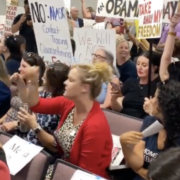
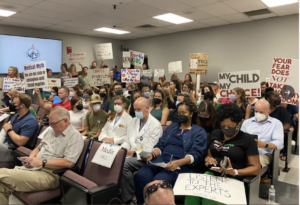
 ??
?? ) we told you about earlier who says there’s “no pandemic” gets tossed, many follow him out. ?
) we told you about earlier who says there’s “no pandemic” gets tossed, many follow him out. ? 